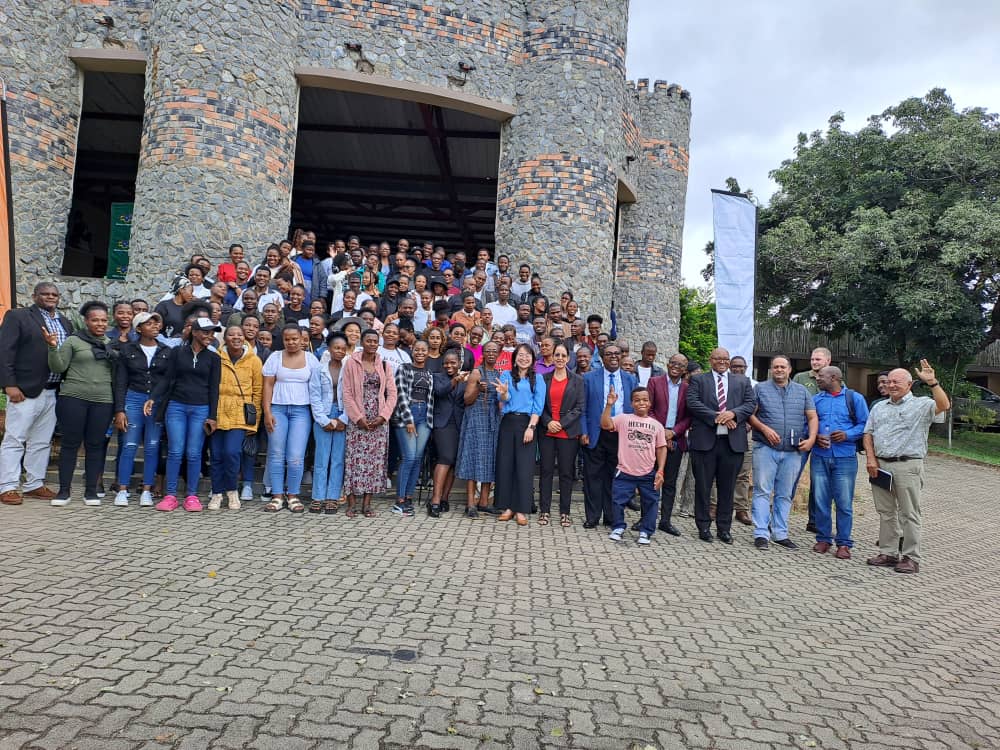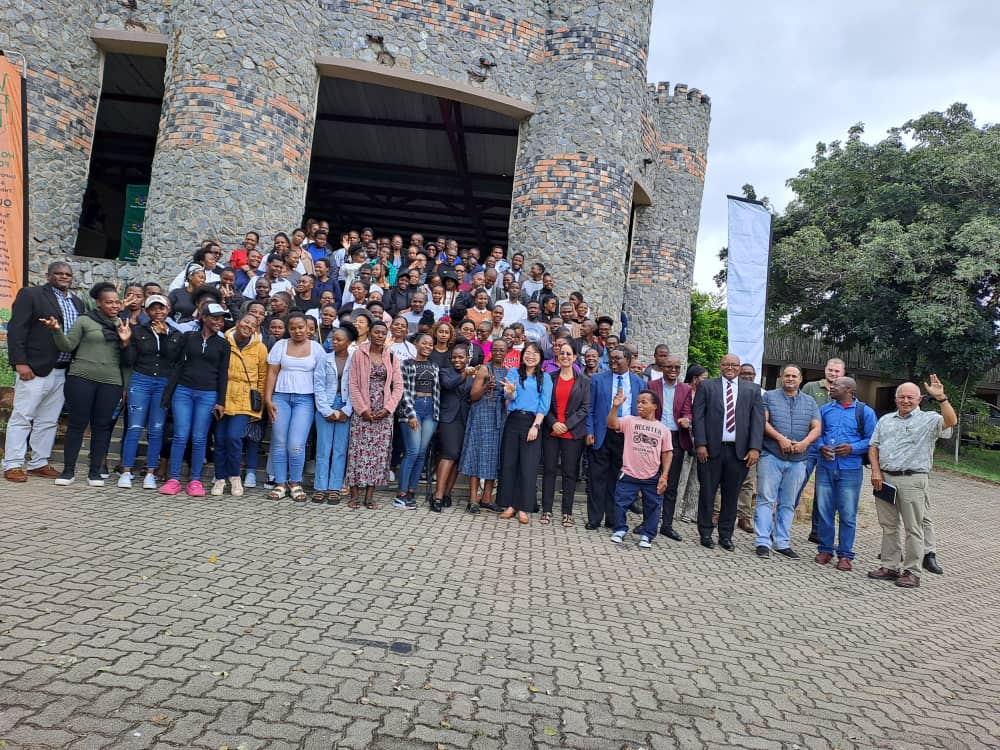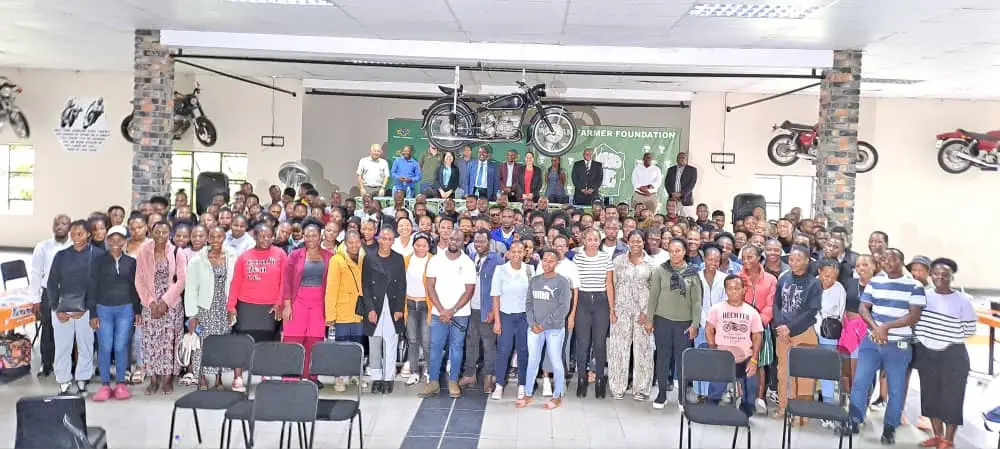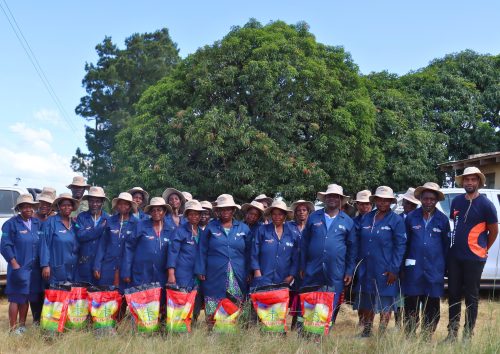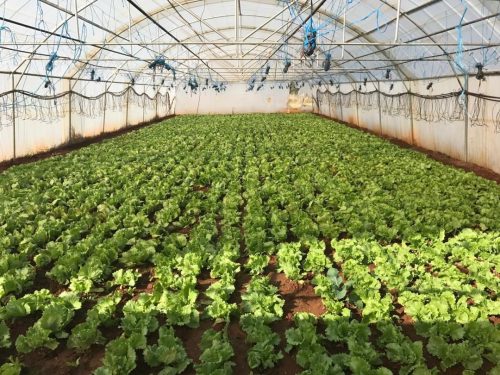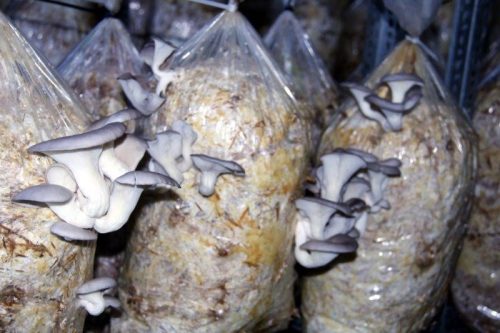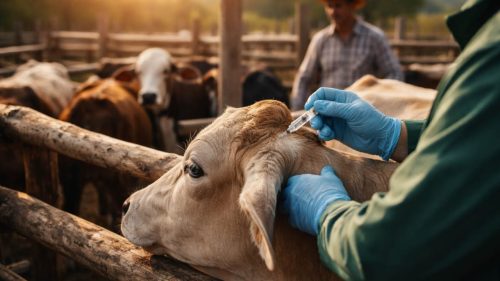BY SIKHULILE DLAMINI
In a powerful stride toward climate resilience, food security, and youth empowerment, Eswatini has launched the 8th to 11th cohorts of the Climate-Smart Tunnel Production Training Programme—doubling its intake to 160 aspiring agripreneurs in 2025.
This bold initiative, spearheaded by the Ministry of Agriculture in collaboration with the Taiwan Embassy and Women Farmer Foundation, reflects a growing urgency to tackle climate change impacts while nurturing the next generation of agricultural innovators.
Since its inception in 2021, the programme has trained over 200 young farmers. This year’s surge in enrollment underscores Eswatini’s commitment to equipping its youth with modern agricultural skills to transform farming into a viable and respected career.
A Future Rooted in Resilience
Representing the Minister of Agriculture, Principal Secretary Mr. Sydney Simelane hailed the programme as a catalyst for national transformation.
“You are not just agri-preneurs—you are ambassadors for agriculture and mentors for your peers,” he told the students. “Agriculture is more than a sector—it is a way of life, a driver of economic growth, and a powerful tool for poverty alleviation.”
Despite over 300 youth expressing interest this year, funding constraints meant only half could be admitted. PS Simelane urged financial institutions and development partners to help bridge this gap, particularly in underserved regions like Lubombo.
The government, he emphasized, is committed to expanding youth participation by providing access to markets, financing, technology, and mentorship.
Taiwan’s Commitment to Smart Agriculture
Taiwanese Ambassador Jeremy Liang reaffirmed Taiwan’s steadfast support for Eswatini’s agricultural ambitions, announcing a sponsorship of USD 86,000 (E1.6 million) to fund this year’s training—including a critical Monitoring and Evaluation (M&E) component to track impact and outcomes.
“Smart agriculture has become the only viable path forward,” said Ambassador Liang. “Our goal is to support Eswatini’s efforts in enhancing climate resilience, food security, and youth employment through practical, sustainable solutions.”
He explained that tunnel farming, a key technique in this programme, has helped Taiwan overcome adverse weather and ensure stable food production. Now, this technology is being shared with Eswatini to combat the extreme weather events increasingly affecting local farmers.
Building a Sustainable and Prosperous Future
Taiwan’s contributions to Eswatini extend far beyond tunnel farming. Joint projects include fruit tree commercialization, aquaculture development, pig industry improvements, and the Taiwan-Africa Vegetable Initiative (TAVI), which has reached over 10% of Eswatini’s population and benefited 24,619 schoolchildren with nutrition education.
“These projects are helping farmers grow high-value crops like guavas, strawberries, and dragon fruits, while introducing improved livestock breeds and aquaculture systems,” Ambassador Liang noted.
The programme’s alignment with global development goals was also underscored. “By investing in smart agriculture,” PS Simelane said, “we are accelerating progress toward SDG 2 (Zero Hunger), SDG 1 (No Poverty), SDG 8 (Decent Work), SDG 13 (Climate Action), and SDG 15 (Life on Land).”
Students as Agents of Change
Students were encouraged to embrace this opportunity as a stepping stone toward owning tunnel farms and building agri-businesses that feed communities, create jobs, and strengthen Eswatini’s economy.
“As we look to the future, let us do so with optimism and confidence,” said the PS. “Together, we can position Eswatini as a leader in climate-smart agriculture and agribusiness.”
With the Agricultural Fund now operational, the future looks promising for these 160 trailblazers set to redefine farming in Eswatini—one tunnel at a time.
Photo credit: Ministry of Agriculture Communications Unit



